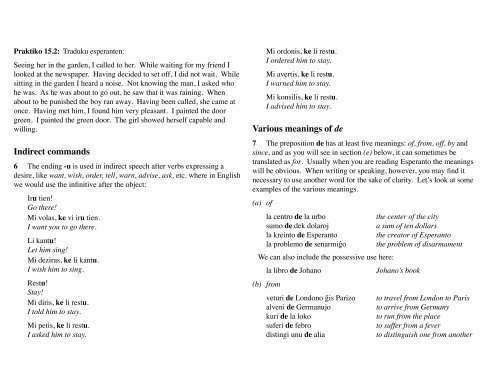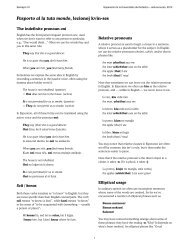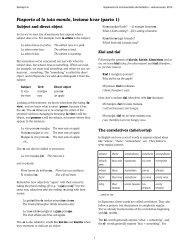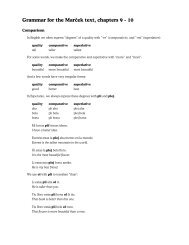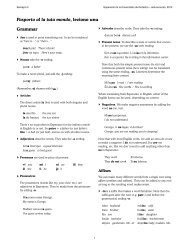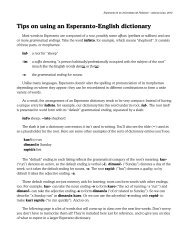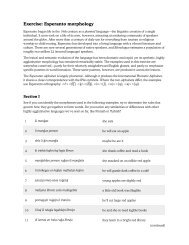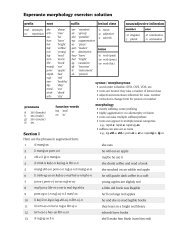The alphabet and pronunciation - Lodestone
The alphabet and pronunciation - Lodestone
The alphabet and pronunciation - Lodestone
- No tags were found...
Create successful ePaper yourself
Turn your PDF publications into a flip-book with our unique Google optimized e-Paper software.
Praktiko 15.2: Traduku esperanten:Seeing her in the garden, I called to her. While waiting for my friend Ilooked at the newspaper. Having decided to set off, I did not wait. Whilesitting in the garden I heard a noise. Not knowing the man, I asked whohe was. As he was about to go out, he saw that it was raining. Whenabout to be punished the boy ran away. Having been called, she came atonce. Having met him, I found him very pleasant. I painted the doorgreen. I painted the green door. <strong>The</strong> girl showed herself capable <strong>and</strong>willing.Indirect comm<strong>and</strong>s6! <strong>The</strong> ending -u is used in indirect speech after verbs expressing adesire, like want, wish, order, tell, warn, advise, ask, etc. where in Englishwe would use the infinitive after the object:! Iru tien!! Go there!! Mi volas, ke vi iru tien.! I want you to go there.! Li kantu!! Let him sing!! Mi deziras, ke li kantu.! I wish him to sing.! Restu!! Stay!! Mi diris, ke li restu.! I told him to stay.! Mi petis, ke li restu.! I asked him to stay.! Mi ordonis, ke li restu.! I ordered him to stay.! Mi avertis, ke li restu.! I warned him to stay.! Mi konsilis, ke li restu.! I advised him to stay.Various meanings of de7! <strong>The</strong> preposition de has at least five meanings: of, from, off, by <strong>and</strong>since, <strong>and</strong> as you will see in section (e) below, it can sometimes betranslated as for. Usually when you are reading Esperanto the meaningswill be obvious. When writing or speaking, however, you may find itnecessary to use another word for the sake of clarity. Let’s look at someexamples of the various meanings.(a)! of! la centro de la urbo! the center of the city! sumo de dek dolaroj! a sum of ten dollars! la kreinto de Esperanto! the creator of Esperanto! la problemo de senarmi"o! the problem of disarmamentWe can also include the possessive use here:! la libro de Johano! Johano’s book(b)! from! veturi de Londono "is Parizo! to travel from London to Paris! alveni de Germanujo! to arrive from Germany! kuri de la loko! to run from the place! suferi de febro! to suffer from a fever! distingi unu de alia! to distinguish one from another


